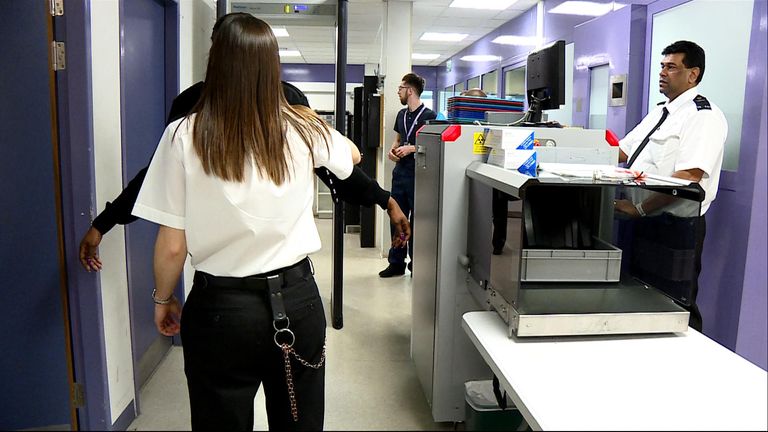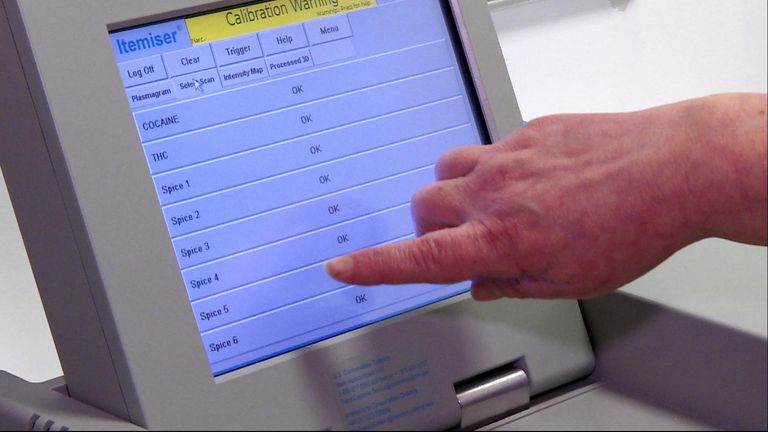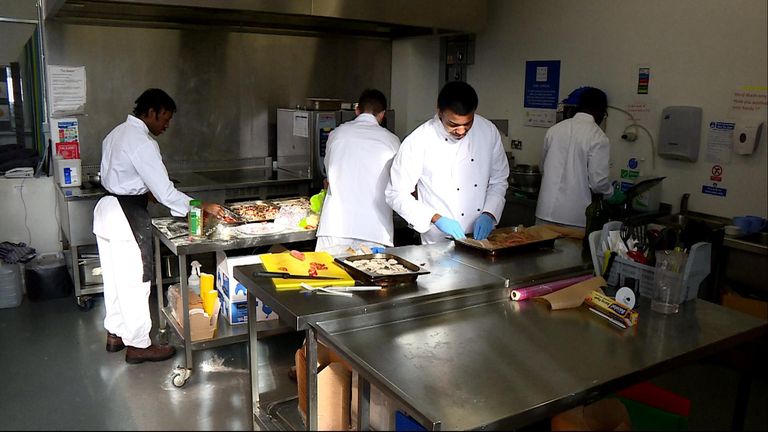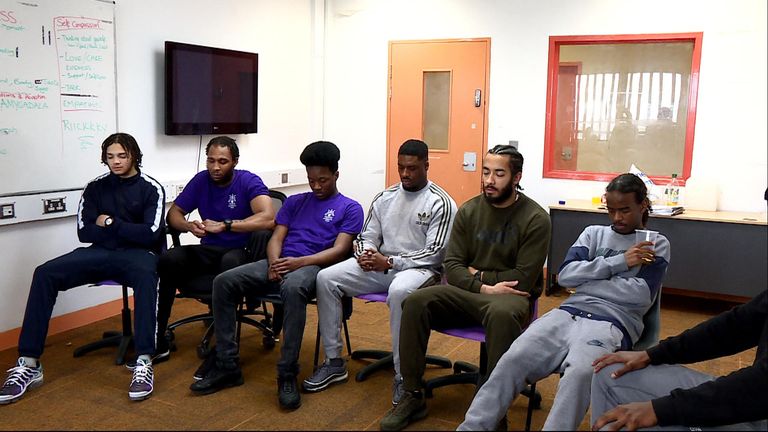Prisons minister hails ‘significant progress’ after tougher security at problem jails
The prisons minister has told Sky News he is “quietly confident” he will be able to keep his job amid indications drug-taking and violence in some jails is beginning to fall.
In a dramatic gesture six months ago, Rory Stewart vowed to resign within a year if there was no meaningful improvement in prison safety.
The last official figures showed violence was still increasing but Mr Stewart said governors at 10 prisons involved in a harm-reduction pilot had told him violence and drug-taking levels were now starting to reduce.
Sky News was granted exclusive access to HMP Isis young offenders’ prison in southeast London, one of the 10 jails included in the violence-reduction pilot.
The prison’s governor, Emily Thomas, said the number of inmates failing random drugs tests at the facility had fallen by around half in recent months.
Stepping inside HMP Isis, the enhanced security is immediately obvious, with new entry scanners for visitors and staff alike.
The focus is on attempting to stop the smuggling of contraband, especially drugs – a trade fuelling much of the violence in prisons across the country.
Last year, the Prison Service recorded more than 20,000 assaults on both inmates and staff, part of a continued upward trend in prison violence since 2012.
HMP Isis also now boasts the latest detector that sniffs for chemical traces, linked to drugs like the synthetic cannabis Spice.
The criminal trade in Spice has seen the drug sprayed onto letters and posted into prison. The pieces of paper are then smoked by inmates.
The new equipment scans letters for various types of Spice and other drugs including cocaine.
The prison has also taken delivery of other scanners which can detect mobile phones smuggled inside someone’s body The number of drugs detection dogs at the jail has also been doubled.
Ms Thomas said the extra investment is already making an impact.
“We’ve been focused on two of the main routes where drugs can be smuggled into prison,” she said.
“So we really thought about the opportunities to bring drugs through our main gates and introduced a considerable amount of extra searching at those points.
“And we’ve also introduced checks to detect drugs that might be smuggled in using the mail system.
“What we’ve seen is a real reduction in those failing random drugs tests. From October last year, through to this month, the number of prisoners testing positive for drugs has halved.”
Along with the enhanced security, the prison’s 600 inmates are being given more opportunities to learn new skills and trades, with a view to placing them in work programmes on their release.
Jordan Boateng-White has spent a year and a half at HMP Isis after being jailed for drug offences.
He said safety at the prison is still a significant issue but that things had improved a little in recent weeks.
He added that the introduction of more training programmes and other classroom-based projects are a positive development.
“There’s a lot of new courses,” he said.
“It’s good, it’s helping out. It gives people more momentum as well. It kills time and gives you enthusiasm to want to do better and change, rather than just leaving this place and committing more crime.”
Mr Stewart said the improvements at HMP Isis are being reflected at most of the 10 pilot prisons.
“In six months these prisons have made significant progress, from tougher security to improved standards of decency, thanks to the tireless work of governors and staff. I am hugely grateful for their efforts,” he told Sky News.
“I promised that I would resign if violence did not start to fall within a year.
“There is still much to do, and I do not underestimate the scale of the challenge, but the first six months have given us a solid platform from which we can set a more positive direction for all our prisons.”
The 10-prison project was announced in August 2018 to tackle the serious problems facing some of the most challenging prisons in the country.
Around £1m of extra money has been invested in each of the 10 prisons.
Mr Stewart said that two of the 10 prisons – Wormwoods Scrubs in London and Leeds Prison – had yet to show a turnaround in levels of violence and drug taking despite the extra investment.
But he said both institutions had deep rooted and highly complex problems which are likely to take some time and effort to resolve.
If the 10-prison pilot is judged to be a success by August, it will be rolled out to around 15 other problem prisons across the country.
Source: Read Full Article









